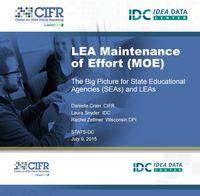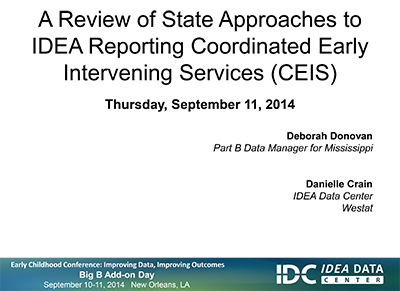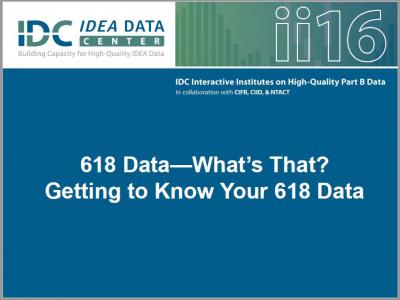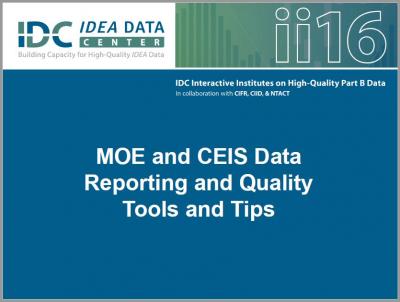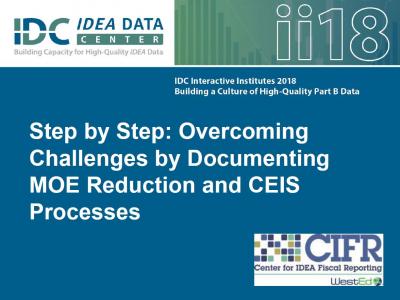Site Search
Results 1 - 5 of 5
Format: Presentations
LEA Maintenance of Effort (MOE)—The Big Picture for State Educational Agencies (SEAs) and LEAsThe IDEA requires LEAs to annually maintain their local or state and local expenditures for the education of children with disabilities. SEAs are required to ensure that LEAs are in compliance with MOE. The CIFR and the IDC presented the basics of LEA MOE options to meet the MOE requirement, the allowed exceptions to reduce MOE, consequences of MOE noncompliance, and fiscal and program requirements necessary to determine the LEA MOE eligibility and compliance. A representative of the Wisconsin Department of Public Instruction shared the state's success story and processes.
Format: Presentations
A Review of State Approaches to IDEA Reporting of Coordinated Early Intervening Services (CEIS)IDEA allows, and sometimes requires, LEAs to use funds provided under IDEA Part B for CEIS students not identified for and receiving special education and related services. There are multiple data collection and reporting requirements associated with use of these funds for CEIS. IDC staff reviewed and led a discussion on how a diverse subset of states and their LEAs are working to meet those requirements.
Format: Presentations
618 Data—What’s That? Getting to Know Your 618 DataHave you heard these terms 618, 616, EDFacts, EMAPS, file specifications, OMB-MAX, GRADS360, Data Quality Reports? Do you understand what they are referencing? Do you want to gain a higher knowledge of these terms? Participants in this presentation learned more about IDEA data reporting requirements in relation to the 618 data collections. They also learned about data quality considerations and tools states can use when going through the data collecting and reporting procedures.
Format: Presentations
MOE and CEIS Data Reporting and Quality Tools and TipsIDC and CIFR staff presented an overview of tools available to states and LEAs around LEA MOE and CEIS requirements and data quality. They also presented information on considerations states and LEAs need to keep in mind in relation to the MOE and CEIS requirements and data quality. One state presented information about the policies, procedures, practices, and tools/ templates it has in place to ensure LEAs meet the LEA MOE and CEIS requirements and improve data quality. The state staff also discussed their work with CIFR around the LEA MOE calculator.
Format: Presentations
Step by Step: Overcoming Challenges by Documenting MOE Reduction and CEIS ProcessesThis workshop explored the benefits of documenting MOE Reduction and CEIS processes for collecting and submitting data to OSEP. Presenters described some of the common challenges that SEAs face with these data. States shared the steps in their processes, who is responsible for the processes, what methodologies they use to collect and review data, and how they consistently validate and report the data.

